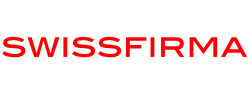Cantons with Lowest Taxes in Switzerland

There are a total of 26 cantons making up the country of Switzerland and each canton features its own tax system. The cantons are as follows; Aargau, Appenzell Inner Rhodes, Appenzell Ausserrhoden, Berne, Basel-Country, Basel-Stadt, Fribourg, Geneva, Glarus, Grisons, Jura Mountains, Lucerne, Neuchâtel, Nidwalden, Obwalden, St. Gallen, Schaffhausen, Solothurn, Schwyz, Thurgau, Ticino, Uri, Vaud, Valais, Zug, Zurich.
Swiss law allows for every canton to make its own tax rates and regulations meaning that any canton is able to collect tax at any rate that is not directly governed by the Swiss Confederation. This is the main reason that each canton features such wildly different tax rates. We have consultants able to assist with canton taxation and company formation in Switzerland.
Swiss law allows for every canton to make its own tax rates and regulations meaning that any canton is able to collect tax at any rate that is not directly governed by the Swiss Confederation. This is the main reason that each canton features such wildly different tax rates. We have consultants able to assist with canton taxation and company formation in Switzerland.
The tax rates and other information for each canton are listed below:
1. Lucerne
In Lucerne, the corporate tax rate is the lowest of any other canton in Switzerland at just 12.32%. The Lucerne economy is comprised of the following industry sectors:
• tourism;
• agriculture;
• public sector;
• metal industry.
2. Nidwalden
The Nidwalden corporate tax rate is also rather low at just 12.66%. This canton features an economy comprised of aviation and mechanical engineering. Investors and business developers should know that there are specific business regulations and frameworks in place which must be followed.
3. Obwalden
Obwalden has anther low corporate tax rate at just 12.89%. The canton of Obwalden features a workforce of skilled and educated individuals who are experienced and offer a great deal of opportunity for business developers. The main sectors which make up Obwalden's economy are the tourism and plastic manufacturing sectors.
4. Appenzell Ausserrhoden
In this canton, there is a corporate tax rate of 13.04% applied to business income. For business owners, it is important to know that the majority of the workforce is devoted to the services industry where over 50% of all working citizens are employed in that sector.
5. Appenzell Inner Rhodes
An income tax of 14.16% is applied in Appenzell Inner Rhodes. The main business sector in this canton is the massive agriculture industry and services sectors. This canton can be a little more complex to form a business in, so we recommend speaking with our consultants to streamline the process.
6. Zug
The Zug corporate tax rate is 14.6%. An important note to make is that Zug is the most stable and one of the most economically powerful cantons in all of Switzerland. The majority of business operating inside Zug are specialised and highly technical companies with a focus on technology and electronics. The financial sector is also one of the largest in Switzerland.
7. Uri
The Uri corporate tax rate stands at 15.11%. The cantons main industry fields or sectors are tourism, which employs over 10% of the entire workforce. Additional sectors include the construction and contracting industry. That being said, this is the reason a number of international business have chosen Uri as a hub for tourism businesses.
8. Schwyz
Featuring a tax rate of 15.27% makes Schwyz the 8th lowest taxed canton in Switzerland. In Schwyz, the local economy is mainly built up agriculture and finance, similar to the rest of Switzerland. Within the agriculture industry, the main sector which stands out in Schwyz is the timber and machine-tools industries.
9. Neuchâtel
One of Switzerland's most heavily tech-focused cantons is Neuchâtel. A tax rate of 15.61% makes the canton very attractive for foreign investors in micro-technology and high-tech development businesses. Countless companies have migrated to Neuchâtel to benefit from its business taxation structure.
10. Glarus
The 10th lowest taxed canton in Switzerland is Glarus, at 15.71%. The canton is a major manufacturer in Switzerland and production of goods is its main economic stabler.
The canton would be the most beneficial for companies looking to set up a manufacturing business in Switzerland.
In Lucerne, the corporate tax rate is the lowest of any other canton in Switzerland at just 12.32%. The Lucerne economy is comprised of the following industry sectors:
• tourism;
• agriculture;
• public sector;
• metal industry.
2. Nidwalden
The Nidwalden corporate tax rate is also rather low at just 12.66%. This canton features an economy comprised of aviation and mechanical engineering. Investors and business developers should know that there are specific business regulations and frameworks in place which must be followed.
3. Obwalden
Obwalden has anther low corporate tax rate at just 12.89%. The canton of Obwalden features a workforce of skilled and educated individuals who are experienced and offer a great deal of opportunity for business developers. The main sectors which make up Obwalden's economy are the tourism and plastic manufacturing sectors.
4. Appenzell Ausserrhoden
In this canton, there is a corporate tax rate of 13.04% applied to business income. For business owners, it is important to know that the majority of the workforce is devoted to the services industry where over 50% of all working citizens are employed in that sector.
5. Appenzell Inner Rhodes
An income tax of 14.16% is applied in Appenzell Inner Rhodes. The main business sector in this canton is the massive agriculture industry and services sectors. This canton can be a little more complex to form a business in, so we recommend speaking with our consultants to streamline the process.
6. Zug
The Zug corporate tax rate is 14.6%. An important note to make is that Zug is the most stable and one of the most economically powerful cantons in all of Switzerland. The majority of business operating inside Zug are specialised and highly technical companies with a focus on technology and electronics. The financial sector is also one of the largest in Switzerland.
7. Uri
The Uri corporate tax rate stands at 15.11%. The cantons main industry fields or sectors are tourism, which employs over 10% of the entire workforce. Additional sectors include the construction and contracting industry. That being said, this is the reason a number of international business have chosen Uri as a hub for tourism businesses.
8. Schwyz
Featuring a tax rate of 15.27% makes Schwyz the 8th lowest taxed canton in Switzerland. In Schwyz, the local economy is mainly built up agriculture and finance, similar to the rest of Switzerland. Within the agriculture industry, the main sector which stands out in Schwyz is the timber and machine-tools industries.
9. Neuchâtel
One of Switzerland's most heavily tech-focused cantons is Neuchâtel. A tax rate of 15.61% makes the canton very attractive for foreign investors in micro-technology and high-tech development businesses. Countless companies have migrated to Neuchâtel to benefit from its business taxation structure.
10. Glarus
The 10th lowest taxed canton in Switzerland is Glarus, at 15.71%. The canton is a major manufacturer in Switzerland and production of goods is its main economic stabler.
The canton would be the most beneficial for companies looking to set up a manufacturing business in Switzerland.
Cost of living in Swiss cantons
Switzerland's cost of living in each canton is rather diverse, with every canton being different and more or less expansive than the next.
Swiss-German cantons for a number of years have been recognised as those with the lowest taxes and therefore lower living costs, and one of these cantons was Uri.
The average Swiss income is roughly taxed at 11.6%, which is considered a major expense. Taking this into account, the lower taxed cantons are on the eastern side of Switzerland.
Swiss-German cantons for a number of years have been recognised as those with the lowest taxes and therefore lower living costs, and one of these cantons was Uri.
The average Swiss income is roughly taxed at 11.6%, which is considered a major expense. Taking this into account, the lower taxed cantons are on the eastern side of Switzerland.
Fiscal sovereignty in Switzerland
In Switzerland, fiscal sovereignty is now spread across all the three government levels which include; the Confederation, cantons and communes. The tax boundary is outlined by the constitution and states that cantons may implement a tax which isn't reserved for the Confederation.
It is good to know that cantonal constitutions are the bodies in charge of securing levies which are based on coefficients or cantonal taxes.
There are a few taxes which are implemented by every canton for every company type. The list is below;
• value-added tax;
• excise duty;
• withholding tax;
• custom duties.
There are however the sovereignty laws and regulations which allow each canton to develop and implement their own taxes. These taxes can also result in an inconsistency with other cantons and create an entirely different taxation type from one canton to another, this means that one canton can have a tax rate 200% higher than the next.
It is good to know that cantonal constitutions are the bodies in charge of securing levies which are based on coefficients or cantonal taxes.
There are a few taxes which are implemented by every canton for every company type. The list is below;
• value-added tax;
• excise duty;
• withholding tax;
• custom duties.
There are however the sovereignty laws and regulations which allow each canton to develop and implement their own taxes. These taxes can also result in an inconsistency with other cantons and create an entirely different taxation type from one canton to another, this means that one canton can have a tax rate 200% higher than the next.
Tax competition between Swiss cantons
The ability for each canton to control its own taxation has also meant that competition has arisen in some cantons, like Zug, Schwyz and Nidwalden. This competition has resulted in the removal of estate taxes and the addition of other types of fees and taxes to make their cantons more attractive to businesses.
This competition and taxation inconsistencies have led to an equalisation system to keep the competitive actions of each canton under control. This is done by the introduction of quotas and other grants.
For more information on the development of companies in Switzerland or the Swiss taxation rates in each canton, don't hesitate to contact our business consultants.
This competition and taxation inconsistencies have led to an equalisation system to keep the competitive actions of each canton under control. This is done by the introduction of quotas and other grants.
For more information on the development of companies in Switzerland or the Swiss taxation rates in each canton, don't hesitate to contact our business consultants.

